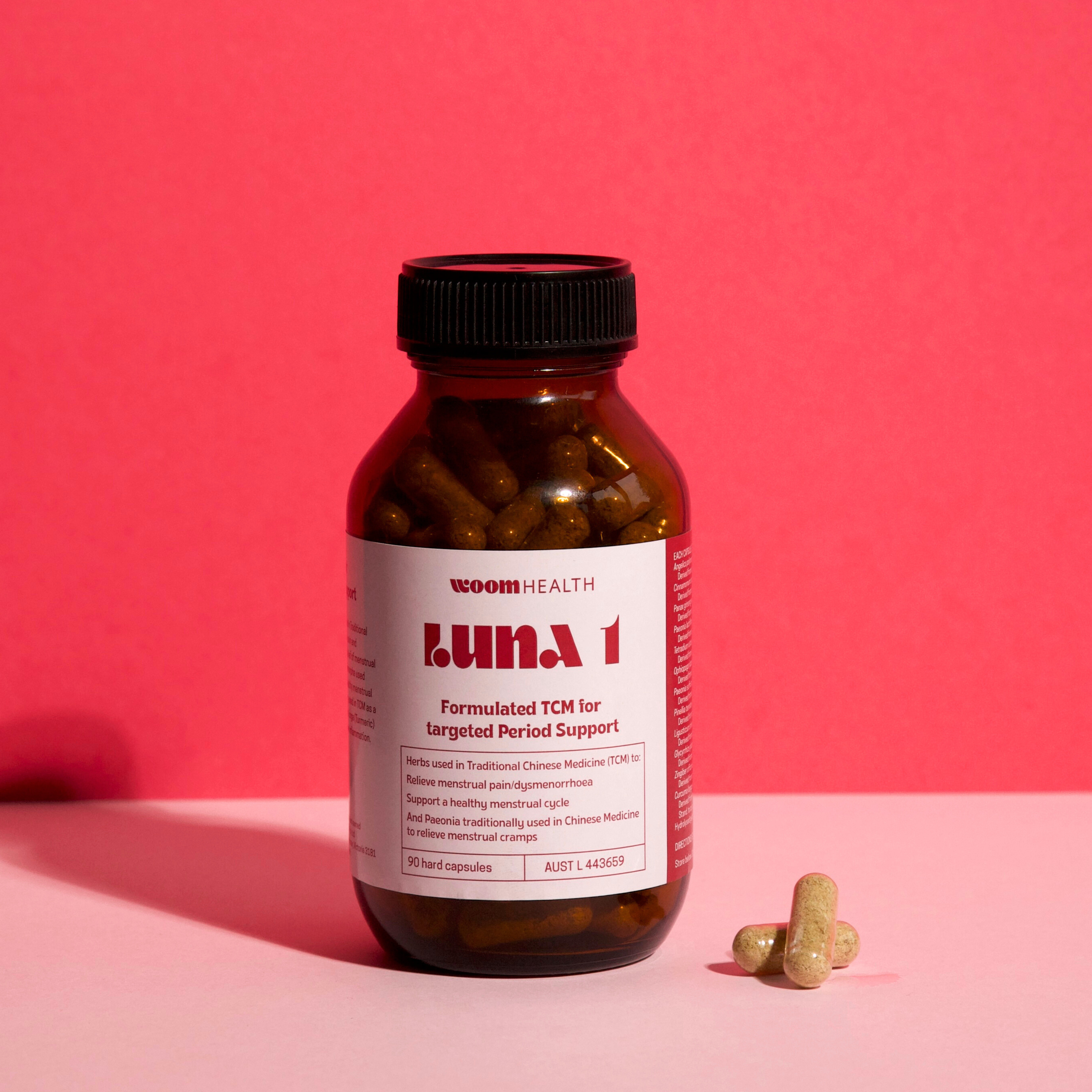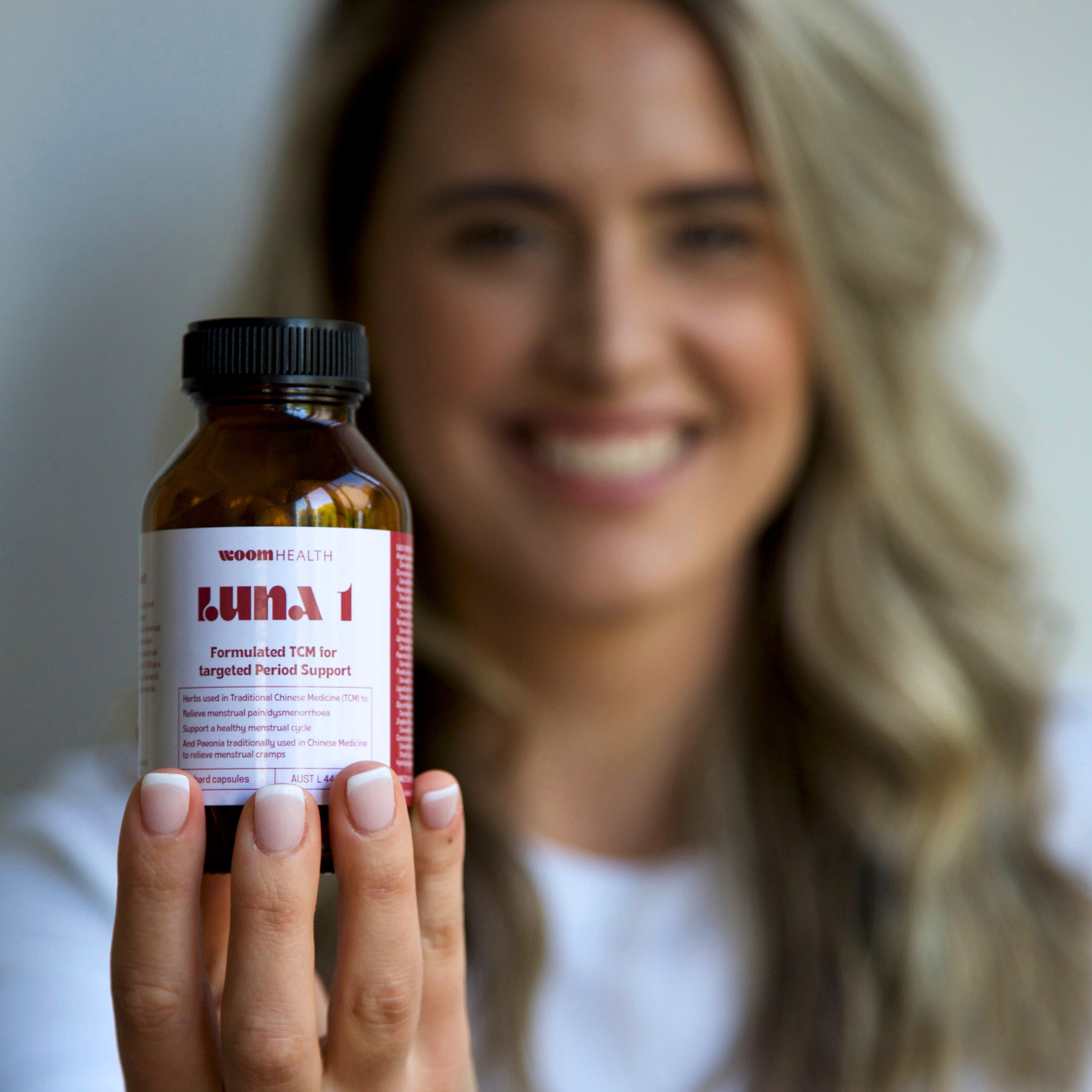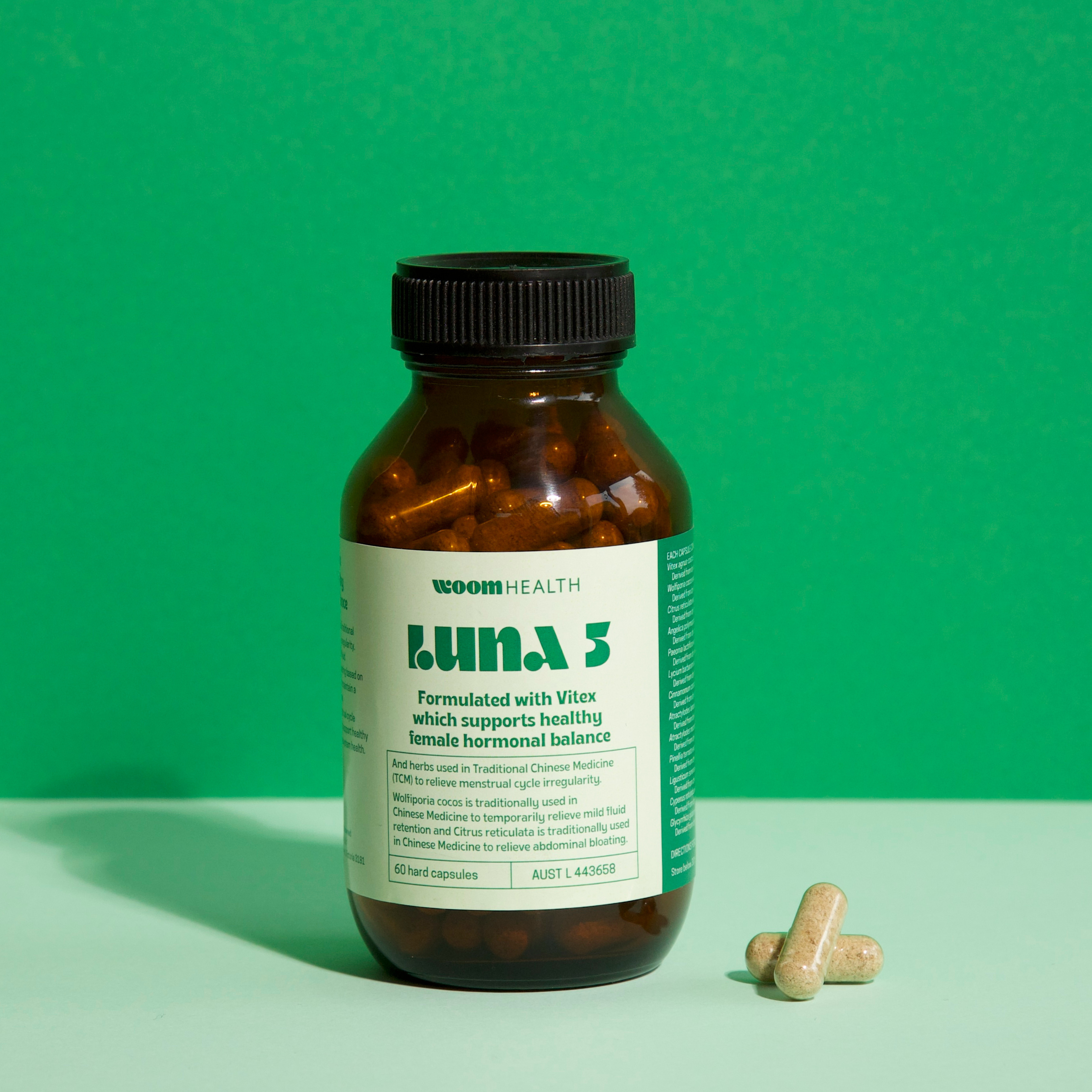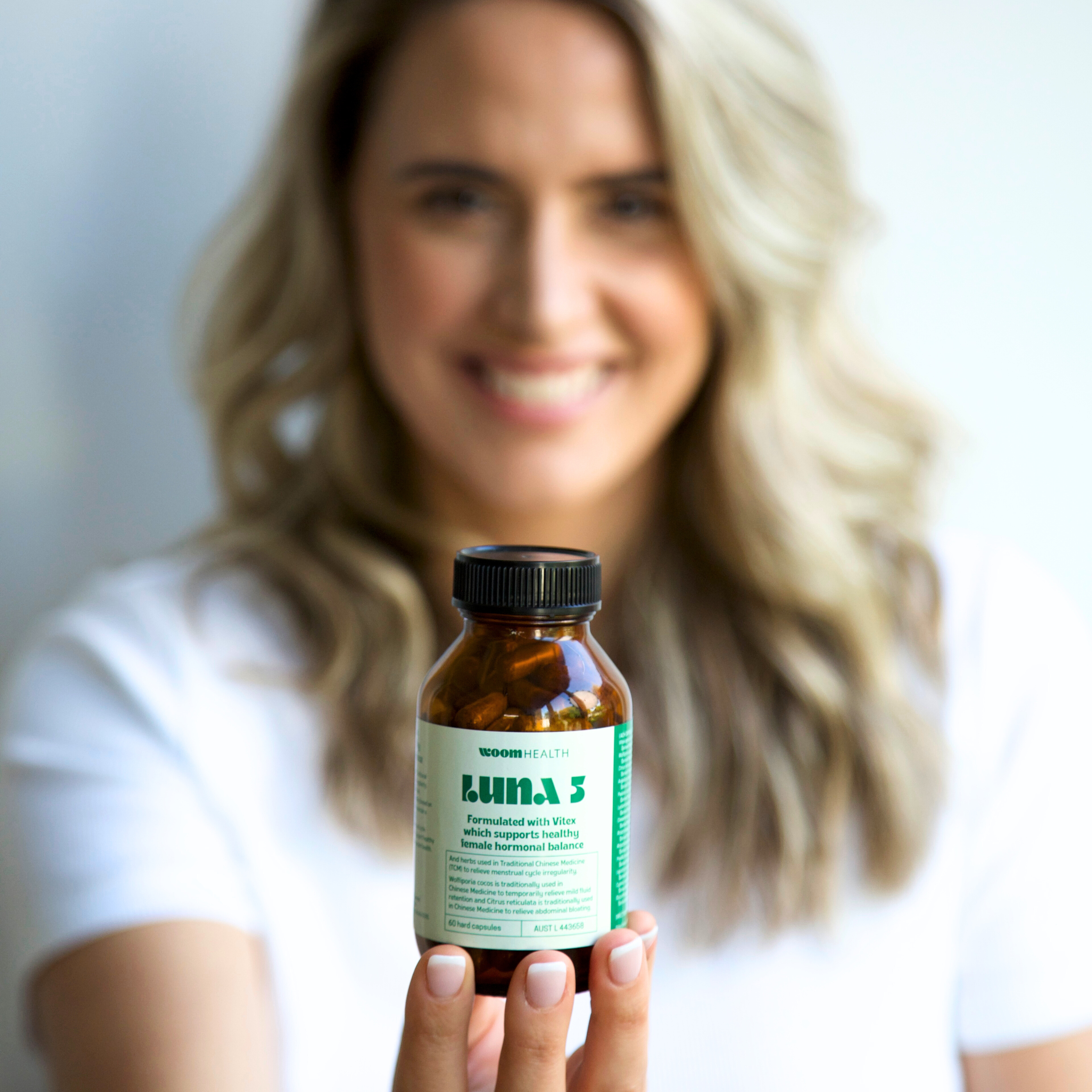PCOS: Are you on this (big hairy) Hormonal Rollercoaster?

(hint: it’s more common than you think)
Ever suffer from irregular menstrual cycles? Does your cycle literally vanish and go on holiday for months on end (and doesn’t even send a postcard)? Do you find yourself putting on weight for no reason? Do you find rogue hairs and pimples sprouting from your chin? (Pass the tweezers, stat). Or notice that your mood can go on a rollercoaster too?
This seemingly disparate ‘collection of symptoms’ could indicate you’re suffering from a syndrome – Polycystic Ovary Syndrome, in fact. Many sufferers don’t ‘join the dots’ on these symptoms, not realising they could have PCOS. Yet it is is the most common endocrine disorder in menstruators of reproductive age. International evidence found that the prevalence of PCOS could be as high as 26% among some populations. In Australia, it’s estimated to affect between 8-13% of menstruators of reproductive age. Some studies suggest it may be even be 1 in 5 menstruators who have PCOS.
let’s unpack pcos
Polycystic Ovary Syndrome is not an ‘ovarian’ syndrome at all. It’s a hormonal and metabolic disorder, with genetics and lifestyle factors all playing a role. It’s a chronic condition that when left untreated, can lead to more serious health problems such as diabetes and cardiovascular disease. Menstruators with PCOS are 50% more likely to have a close female relative with PCOS. It’s also more common in people of Asian, African, Aboriginal and Torres Strait Islander backgrounds.
so what are the symptoms of pcos?
Each person with PCOS can have different symptoms, and symptoms can change over time:
- 70% have irregular or no periods.
- 60% suffer from hirsutism (excess hair in places such as face, chest and abdomen)
- Acne and rough, dark patches of skin.
- Alopecia (scalp hair thinning or loss).
- Weight gain.
- Pelvic pain.
- Difficulty getting pregnant.
- Emotional problems (anxiety, depression or poor self-esteem) as a result of the other symptoms.
why is it called polycystic ovary syndrome?
Every month, one of your dutiful, loyal ovaries tries its best to release an egg and ovulate, despite the hormonal imbalances going on in the body with PCOS. The ovary attempts to make its eggs grow, but it may not manage to get an egg mature enough to fully ovulate. This leads to a swollen, enlarged ovary filling with multiple tiny cysts of immature eggs (follicles), thus the name – ‘polycystic’. These tiny ‘cysts’ are not the large painful kind that some need to have surgically removed.
pcos really is a hormonal rollercoaster
hyperandrogenism
Women with PCOS usually have higher levels of male hormones (androgrens), including testosterone.
oestrogen interference
High levels of androgens interferes with the normal production of female hormones like oestrogen.
low progesterone
Women with PCOS may have low levels of the female hormone progesterone that helps regulate menstruation and maintain a pregnancy.
high lh
Those with PCOS may also be prone to LH hypersecretion (Luteinising hormone is part of a normal menstrual cycle – high levels can contribute to higher levels of testosterone and low levels of FSH which contributes to poor egg development and inability to ovulate).
insulin resistance
Insulin is a hormone that regulates the change of sugar, starches, and other food into energy for the body’s use or for storage. PCOS also makes your body less responsive to insulin so produces it in excess. Excess insulin causes high blood sugar levels and can further increase male hormones, making symptoms of PCOS worse!
the ins & outs of insulin resistance
We know that menstruators with PCOS are ‘insulin-resistant’, meaning cells don’t respond to insulin properly, so when sugars hit their bloodstream, their body makes EXTRA insulin to process the sugar. The higher levels of insulin have several effects in different areas of their body, including messing with their ovaries!
Ovaries: The insulin stimulates the ovaries to produce more testosterone and this can reduce ovulation and correlate with amenorrhea (absense of menstruation). There is a slightly higher risk of endometrial (or uterine) cancer in menstruators with irregular menstrual cycles. The high levels of insulin and testosterone in menstruators with PCOS can sometimes be converted to oestrogen, leading to elevated levels which can lead to heavy, crampy periods.
Body: Excess insulin causes a rise in male hormones which can lead to excessive hair growth and acne.
Weight: The extra insulin leads to weight gain and makes it much harder for menstruators with PCOS to lose it and keep it off. It can compound too, as fat tissue ALSO increases insulin resistance, leading to even higher levels of insulin, which leads to more weight gain.
increased health risks
If you have PCOS, the effects of long term insulin resistance can increase your risk of developing:
- Type 2 diabetes.
- Gestational diabetes and high blood pressure in pregnancy.
- High cholesterol.
- High blood pressure.
- Obesity/being overweight, carrying fat around your middle.
- Cardiovascular disease such as heart attacks and strokes.
- Non-alcoholic fatty liver disease (NAFLD).
diagnosing pcos
No one test can definitively diagnose PCOS. Blood tests measure insulin, testosterone and luteinising hormone. An ultrasound scan of the ovaries will look for multiple follicles. (About 20% of all menstruators will have ovarian cysts visible on the ultrasound, so having cysts alone does not necessarily mean you have PCOS).
A diagnosis will be formed by a combination of having polycystic ovaries, plus symptoms of a hormone imbalance, such as irregular periods or excess hair, acne or weight gain. Your doctor might also recommend additional tests including ongoing checks of blood pressure, glucose tolerance, cholesterol and triglyceride levels, screening for anxiety and depression or for obstructive sleep apnoea.
From a Chinese medical perspective, it’s always important to look at the individual pattern diagnosis. Your practitioner will do a thorough evaluation of physical and emotional signs and symptoms, as well as analysing your diet and lifestyle, and checking your tongue and pulse. Although every diagnosis in Chinese medicine is individual, the most common TCM diagnosis patterns for PCOS is kidney yang deficiency with phlegm and dampness.
putting pcos in its place
PCOS can’t be cured but can be managed using a multi-disciplinary approach. Treatment generally involves lifestyle changes, medication or counselling.
Maintaining a healthy lifestyle is the first step and the best way to improve symptoms and manage your long-term health.
- Eat well
- Reduce stress
- Stay physically active
- Keep a menstrual cycle diary (so you know your patterns)
- Monitor symptoms
Follow us on social and join the PCOS conversation.








